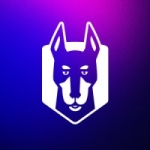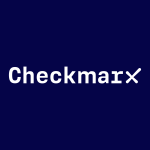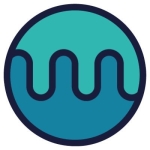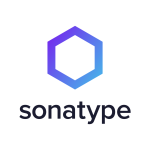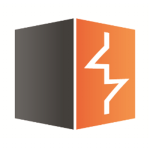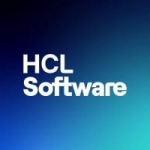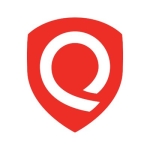What is our primary use case?
Our primary use case of SonarQube is getting feedback on code. We are using Spring Boot and Java 8. We are also using SonarLint, which is an Eclipse IDE plugin, to detect vulnerabilities during development. Once the developer finishes the code and commits the code into the Bitbucket code repository, the continuous integration pipeline will automatically run using Jenkins. As part of this pipeline, there is a build unit test and a SonarQube scan. All the parameters are configured as per project requirements, and the SonarQube scan will run immediately once the developer commits the code to the repository. The advantage of this is that we can see immediate feedback: how many vulnerabilities there are, what the code quality is, the code quality metrics, and if there are any issues with the changes that we made. Since the feedback is immediate, the developer can rectify it immediately and can further communicate changes. This helps us with product quality and having less vulnerabilities in the early stages of development.
This solution is deployed on-premise.
What is most valuable?
One of the most valuable features of SonarQube is its ability to detect code quality during development. There are rules that define various technologies—Java, C#, Python, everything—and these rules declare the coding standards and code quality. With SonarQube, everything is detectable during the time of development and continuous integration, which is an advantage. SonarQube also has a Quality Gate, where the code should reach 85%. Below that, the code cannot be promoted to a further environment, it should be in a development environment only. So the checks are there, and SonarQube will provide that increase. It also provides suggestions on how the code can be fixed and methods of going about this, without allowing hackers to exploit the code.
Another valuable feature is that it is tightly integrated with third-party tools. For example, we can see the SonarQube metrics in Bitbucket, the code repository. Once I raise the full request, the developer, team lead, or even the delivery lead can see the code quality metrics of the deliverable so that they can make a decision. SonarQube will also cover all of the top OWASP vulnerabilities, however it doesn't have penetration testing or hacker testing. We use other tools, like Checkmarx, to do penetration testing from the outside.
What needs improvement?
SonarQube could be improved with more dynamic testing—basically, now, it's a static code analysis scan. For example, when the developer writes the code and does the corresponding unit test, he can cover functional and non-functional. So the SonarQube could be improved by helping to execute unit tests and test dynamically, using various parameters, and to help detect any vulnerabilities. Currently, it'll just give the test case and say whether it passes or fails—it won't give you any other input or dynamic testing. They could use artificial intelligence to build a feature that would help developers identify and fix issues in the early stages, which would help us deliver the product and reduce costs.
Another area with room for improvement is in regard to automating things, since the process currently needs to be done manually.
Aside from other helpful features, the most important thing that SonarQube needs to do—the key feature—is to detect security vulnerabilities. The rest of the other features are helpful to the developer and the team to deliver the product faster, but security is a mandatory feature.
As for additional features, SonarQube covers most of the languages, but there is still room for improvement covering the latest version of the tech stack—for example, Java 13. They're still improving, and they're focusing on SonarCloud nowadays. Currently, we aren't using all the top quality features of SonarCloud. I also think it would be helpful if SonarQube could integrate with Jira, a work management tool, or other communication tools, like Skype or Microsoft Teams, so that a bot could report directly to the developer.
For how long have I used the solution?
I have been using SonarQube for the past three years.
What do I think about the stability of the solution?
The stability and performance of SonarQube are good. We use it on a daily basis, as part of our code development.
As far as maintenance, it mainly happens when the product is being developed. There may be some features which can be enhanced, based on customer feedback and the tech stack, such as how we can improve performance of have a deployment with zero downtime. There are so many technologies coming, so many things happening, and there is always room for code improvements and the product we develop. Our top considerations are quality and security, which are being improved in a continuous process. There are many new features and enhancements coming in—for example, if you want to upgrade from the Java 6 version, then you can upgrade the tech stack, which will reduce the number of lines of code and improve performance.
What do I think about the scalability of the solution?
This solution is easy to scale. The instances in which we are deploying it are easy to scale because we are using it in production. We aren't supposed to deploy as part of the development, but the scalability feature is there because we are using Ansible, Kubernetes, and Docker.
In our organization, there are currently around 25,000 people working with SonarQube.
Which solution did I use previously and why did I switch?
We also use Checkmarx and Snyk. One of the main differences between them and SonarQube is that they have dynamic testing and analysis, rather than static analysis.
How was the initial setup?
The initial setup wasn't a complex process. It was straightforward, and I had no issues. The deployment happened automatically and the pipeline was complete in three minutes. It depends on the scale of the project, the number of code repositories, the number of modules you are deploying, and all that. I would say deployment should take five minutes, maximum.
What about the implementation team?
We implemented this solution through an in-house team. Everything happens internally and we have our own internal tools, so there are no third-parties involved in development.
What's my experience with pricing, setup cost, and licensing?
I'm not too aware of the pricing because a different team covers that, but SonarQube has been on the market for a very long time, so I would guess the pricing would be decent.
What other advice do I have?
I rate SonarQube an eight out of ten.
To those looking to implement SonarQube, I would advise you not to run it manually—integrate it with tools like Bitbucket and Jenkins, and make it automatic. If you change one line of code, the SonarQube should run automatically and give you the report. Don't go and run it manually and check the reports and all—it should run automatically to the entire code base, not to your particular module. So you need to configure that, as well as your project requirements and what code quality metrics will be achievable—like 85% or 95%—because you want code quality for a better product, without loopholes. You need to configure these things before starting to work with SonarQube.
Which deployment model are you using for this solution?
On-premises
Disclosure: I am a real user, and this review is based on my own experience and opinions.






